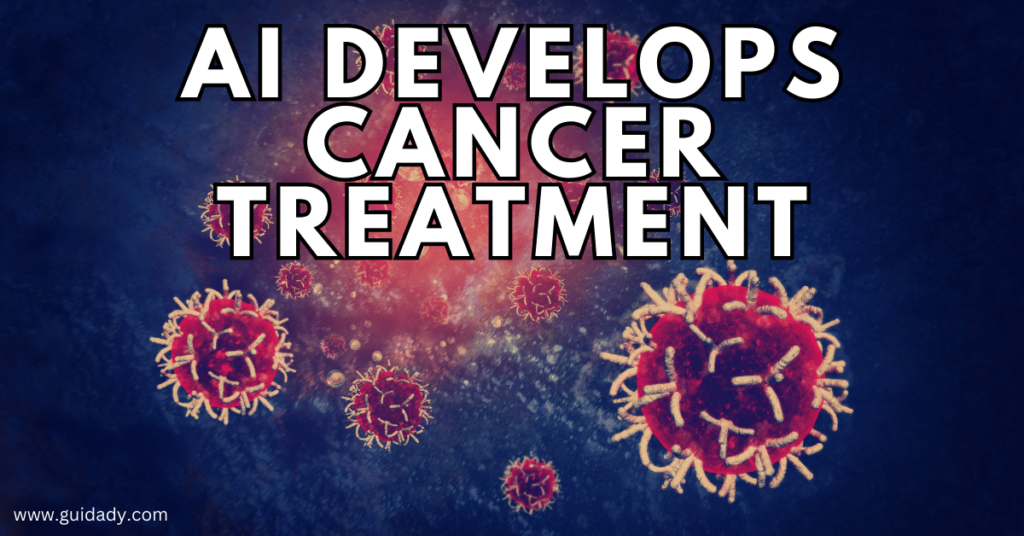Cancer is one of the most severe health challenges worldwide, and the race to find a cure has been ongoing for decades. Immunotherapy, a cancer treatment that uses the body’s immune system to fight cancer cells, has been a breakthrough in the field. However, immunotherapy is not always effective for everyone. Researchers are now using artificial intelligence (AI) to develop more effective immunotherapy treatments. In this article, we will explore how AI is developing immunotherapy for cancer treatment.
Introduction to Immunotherapy
Immunotherapy is a cancer treatment that uses the body’s immune system to fight cancer cells. Unlike chemotherapy, which targets both healthy and cancerous cells, immunotherapy targets cancer cells specifically, which reduces side effects. Immunotherapy has been successful in treating various types of cancer, such as melanoma, lung cancer, and lymphoma.
The Limitations of Immunotherapy
Although immunotherapy has been successful in some cases, it is not always effective for everyone. The reasons for this are not yet fully understood. The complexity of cancer cells and the way they interact with the immune system makes it challenging to develop effective immunotherapy treatments. That is where AI comes in.
AI and Immunotherapy
AI has the potential to analyze vast amounts of data and find patterns that humans cannot easily identify. In cancer research, AI is being used to analyze patient data and develop personalized treatment plans. AI can also identify biomarkers, which are unique characteristics of a patient’s cancer cells that can be targeted with immunotherapy. AI can also predict which patients are more likely to respond to immunotherapy and which patients are at a higher risk of side effects.
Advancements in AI and Immunotherapy
Recent advancements in AI and immunotherapy have led to the development of new cancer treatments. For example, researchers at MIT have used AI to develop a new immunotherapy treatment called “immune-stimulating antibody conjugates” (ISACs). ISACs are designed to activate immune cells and target cancer cells specifically. This treatment has been successful in treating various types of cancer in preclinical studies.
Challenges in AI and Immunotherapy
There are still some challenges in using AI to develop immunotherapy treatments. One of the main challenges is the lack of data. Cancer patient data is often scattered across multiple institutions and is not easily accessible. AI relies on large amounts of data to identify patterns and develop treatments. Therefore, researchers need to find ways to collect and share patient data securely.
Conclusion
In conclusion, AI is playing a crucial role in the development of immunotherapy for cancer treatment. With its ability to analyze vast amounts of data and identify patterns, AI is helping researchers develop personalized treatment plans and more effective immunotherapy treatments. Although there are still challenges to overcome, the future of cancer treatment looks promising with the help of AI.
FAQs
- What is immunotherapy, and how does it work?
Immunotherapy is a cancer treatment that uses the body’s immune system to fight cancer cells. Unlike chemotherapy, which targets both healthy and cancerous cells, immunotherapy targets cancer cells specifically.
- Why is immunotherapy not always effective?
The complexity of cancer cells and the way they interact with the immune system makes it challenging to develop effective immunotherapy treatments. That is why researchers are using AI to analyze patient data and develop more effective treatments.
- What is the role of AI in cancer research?
AI has the potential to analyze vast amounts of data and find patterns that humans cannot easily identify. In cancer research, AI is being used to analyze patient data and develop personalized treatment plans.
- What are biomarkers, and how are they used in immunotherapy?
Biomarkers are unique characteristics of a patient’s cancer cells that can be targeted with immunotherapy.
